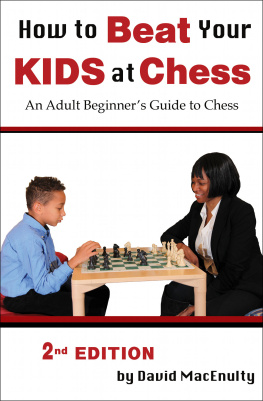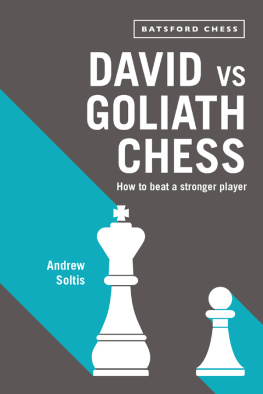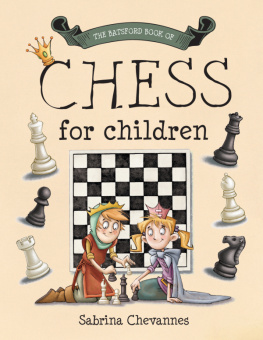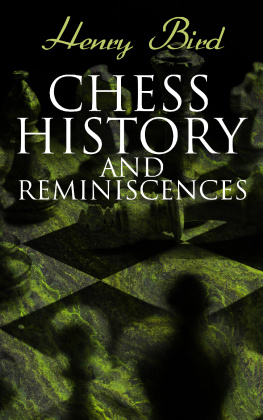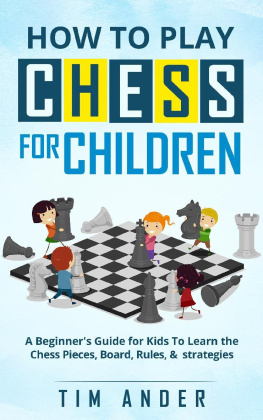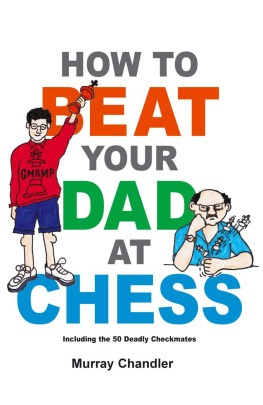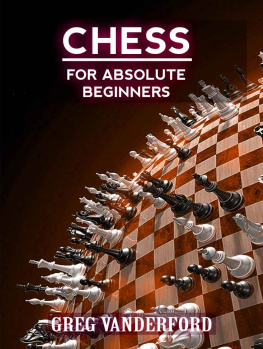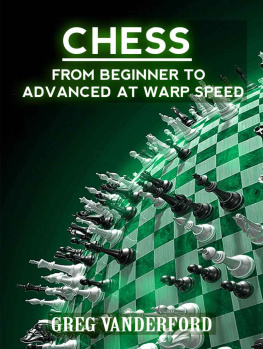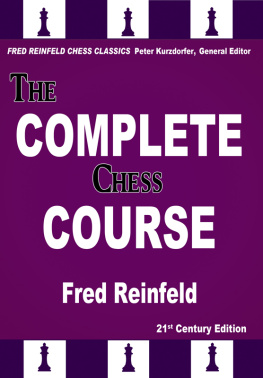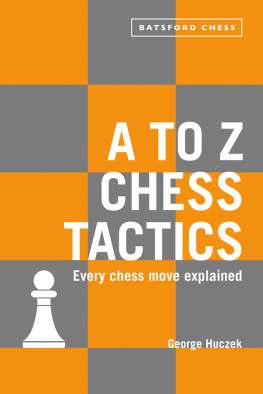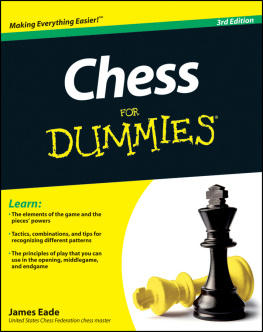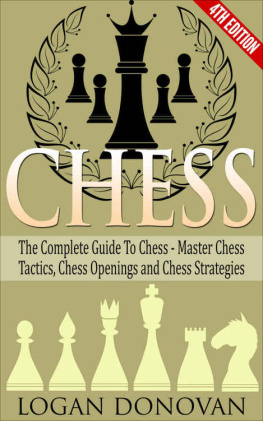
How to Beat Your Kids at Chess
An Adult Beginners Guide to Chess
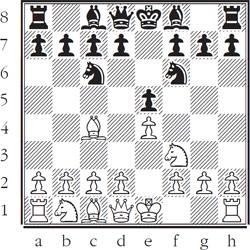
by David MacEnulty
Second Edition

2012
Russell Enterprises, Inc.
Milford, CT USA
How to Beat Your Kids at Chess
An Adult Beginners Guide to Chess
by David MacEnulty
Second Edition
ISBN: 978-1-936490-59-2 (print)
Copyright 2012
David MacEnulty
All Rights Reserved
No part of this book may be used, reproduced, stored in a retrieval system or transmitted in any manner or form whatsoever or by any means, electronic, electrostatic, magnetic tape, photocopying, recording or otherwise, without the express written permission from the publisher except in the case of brief quotations embodied in critical articles or reviews. Teachers should email for permission to copy and for supplemental exercises.
Published by:
Russell Enterprises, Inc.
P.O. Box 3131
Milford, CT 06460 USA
http://www.russell-enterprises.com
Cover design by Janel Lowrance
Printed in the United States of America

2012
Russell Enterprises, Inc.
Milford, CT USA

QED stands for Quality, Excellence and Design. The QED seal of approval shown here verifies that this eBook has passed a rigorous quality assurance process and will render well in most eBook reading platforms.
For more information please click here.
To all my students at C.E.S. 70 in the Bronx.
You continue to inspire.
I am very grateful to Bruce Pandolfini and Mitch Fitzko for their insightful comments on the manuscript of this book, and to Lesley Koustaff, whose keen editorial eye led to many improvements. I thank Dr. Leah M. DeSole for her important contribution to the introduction.
I am also deeply indebted to Joey Carolino for the book design, and to Heather McCarron for her work as production editor. The transformation these two performed on the initial text is beyond anything I could have imagined.
Introduction
This is a book for adult beginners. Adult beginners generally fall into five categories.
- Adults who have a child who is learning to play chess and they want to help their child learn, or at least understand what it is that their little one is learning;
- Adults who have been thrust into a position at a school where they are in charge of the chess program. They have limited knowledge of the game, need to improve rapidly, and find ways to help the children in their program progress;
- Adults who know very little about the game and have no formal training so their friends always beat them;
- Adults who always wanted to learn to play chess but are afraid that it may be too late; and
- Adults who are looking for an interesting way to keep their mind active.
Lets take these in reverse order.
Adults who are looking for an interesting way to keep their mind active.
In learning to play chess you embark on a journey that will stimulate, develop, enhance and challenge every thinking skill known to man or woman. Mental activity is like physical activity. When you exercise your muscles, your body is energized. When you exercise your brain, your mind is energized. Chess is a gymnasium for the brain.
In every chess game the players must recognize patterns, categorize and classify information, establish a hierarchy of values, calculate sequences of moves, interpolate moves within the sequence, reason by analogy, compare and contrast various structures and values, and make exciting leaps of the imagination. Every part of the brain is excited in the quest to find favorable outcomes and avoid those that will cause a deterioration of the position.
The architecture of the brain is amazing. The brain contains approximately 100 billion neurons, or brain cells, and for each neuron there are at least 10 glia, or support cells. During development, all of these complicated cells organize into vast interconnecting and interacting networks. Scientists once believed that these networks were solidified by adulthood. Now, however, we know this is not the case. Brain cells continue to develop and reorganize in a multitude of ways as we ageas long as we keep them active and challenged. As the brain is exercised, new connections are made, new neuronal networks are formed and the mind is kept alive and active. Indeed, scientists have found that one of the best ways to maintain mental acuity into old age is to keep challenging the brain with stimulating activities. Neurologists have observed the neuronal interplay within the brain of people playing chess and found the whole brain teeming with activity. Chess is an ideal method of keeping the mind alert and active, from kindergarten to age ninety and beyond.
Adults who always wanted to learn to play chess but are afraid that it may be too late.
I have also heard many adults wistfully lament that they never learned to play chess and wonder if it is too late for them, now that they are adults. Some think that children learn faster than adults. Well, let me tell you, adults learn much faster than children. We adults have a huge background of relevant information that we can draw on to support new learning. When things make sense they fall into place much faster in the adult mind than in a childs mind. The problem adults have is not in the ability to take in new information; most of us are just too busy with our job or other adult activities to compare favorably with a childs intake of information. It is the childs job to learn. We have our own jobs already. However, I am convinced that with just a brief period of working through this book every day, or every other day, or even twice a week, any literate adult can learn the basics of chess very quickly. I am convinced of this for a very good reason: I have seen it happen, repeatedly. An adult can learn in half an hour what a first grader will learn in six hours. Chess is a complex game. However, the ideas behind it are simple. If you can recognize a straight line, count to eight and know the first eight letters of the alphabet, you know all you need to know to start learning chess.
Some have said they do not have the mind for chess, or the patience, or the discipline, or have some other reason for thinking they cannot learn the game. Interestingly, the people who say these things are often people with a vast array of skills that have direct chess applications. If you are wondering if you have the mind, patience or discipline for chess, I am confident this book will answer your question in the affirmative, and you will discover that you can indeed learn chess.
Adults who know very little about the game and have no formal training so their friends always beat them.
I keep losing to my friends! I hear this sad lament often from people who only know how the pieces move but have never been told of the scientific principles that govern good play in chess. Learning the basic principles is relatively easy, and many of them are to be found in this book; learning to apply them to the seemingly infinite variety of positions on the chess board takes practice and study. However, by the time you finish this book, you will be well on your way to either winning more games or at least understanding what you need to do to get to the next level. If you are in this category, this book will put you way ahead of where you are now.
Next page
